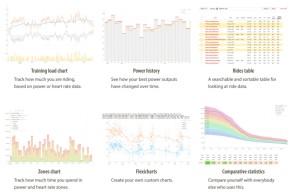Big Data and technological doping
New technologies are becoming more and more integrated into sport. How they can influence the performance of the cyclist and the outcome of the competition and setting limits to them is one of the latest concerns of the World Anti-Doping Agency, which is already working on a project to anticipate the ethical and legal problems that could arise from the application of technology.

Big Data and new technologies open the door to new forms of doping
The use of technology to adulterate competition results is nothing new. Surely we can all think of the hackneyed cases of the use of electric motors on bikes, isolated cases that caused the UCI to establish a whole system of testing bikes to prevent their use.
Questions could also be raised about the influence and ethics of using newer products such as brain stimulation systems, which send waves to the brain that improve neural connections, enhancing characteristics such as explosiveness, strength or endurance.
RECOMENDADO

When do helmets have to be changed? Do they have an expiration date?

The best apps for cycling and mountain biking

Black Friday Garmin 2025: the ultimate guide to choosing your GPS at the best price

How to wash your cycling clothes? 10 keys to make them always look new

Cycling can help you fight the effects of the time switch

Easy to apply tips for riding faster
![]()
Although nowadays they are not a problem as far as the cleanliness of competitions is concerned, WADA has already expressed its interest in how technology could affect sport in the future and has launched a project to study the ethical and legal implications that could arise, led by Alberto Carrio, professor of philosophy of law at the Pompeu Fabra University in Barcelona. The project has the support of BBVA and experts in ethics from other universities such as the Oxford University.
The project does not only focus on the use of new technologies as a possible form of doping but also addresses the aspect of the impact on athletes' rights that these technologies might entail.
This is motivated by the increasing use of artificial intelligence and massive data analysis, also known as Big Data, which involves access to personal parameters of athletes that are then processed by various algorithms to venture information about their performance.
 A recent example was the exhaustive monitoring carried out by Jumbo-Visma of their leader Jonas Vingegaard and the rest of the riders who are monitored every watt they move on the bike, their nutrition to the millimetre, their sleep and rest hours as well as their physiological parameters, in principle only to fine-tune their preparation and participation in the races with the utmost precision.
A recent example was the exhaustive monitoring carried out by Jumbo-Visma of their leader Jonas Vingegaard and the rest of the riders who are monitored every watt they move on the bike, their nutrition to the millimetre, their sleep and rest hours as well as their physiological parameters, in principle only to fine-tune their preparation and participation in the races with the utmost precision.
However, this massive collection of data opens the door to the possibility that it could be used in less ethical ways by reducing the athlete to mere numbers. A clear example of this is in football, where Big Data is applied to advise clubs on possible signings, with artificial intelligence algorithms anticipating which players will have the best projection over time.
This may mean that a player or rider who for whatever reason has had a bad run of form will be crossed out by the algorithm or limit his chances of getting a good contract or his chances of going to a certain race when the team chooses the line-up on the basis of the stored data.

Currently, one of the most monitored sports is football, where the use of GPS trackers that collect every movement of the player on the pitch while monitoring a multitude of physiological parameters has become popular. In addition, all the information that is generated during matches about the performance of each player is also monitored: passes, shots, dribbles, distance travelled, speed...
Cycling is no stranger to football, where top teams keep close track of everything about the cyclist thanks to the information stored on GPS cycling computers and data from power meters or heart rate monitors that can even anticipate performance based on cardiac activity.
A new paradigm in sport that could condition competitions in the future and which we should anticipate before technology irreversibly transforms sport as we know it.